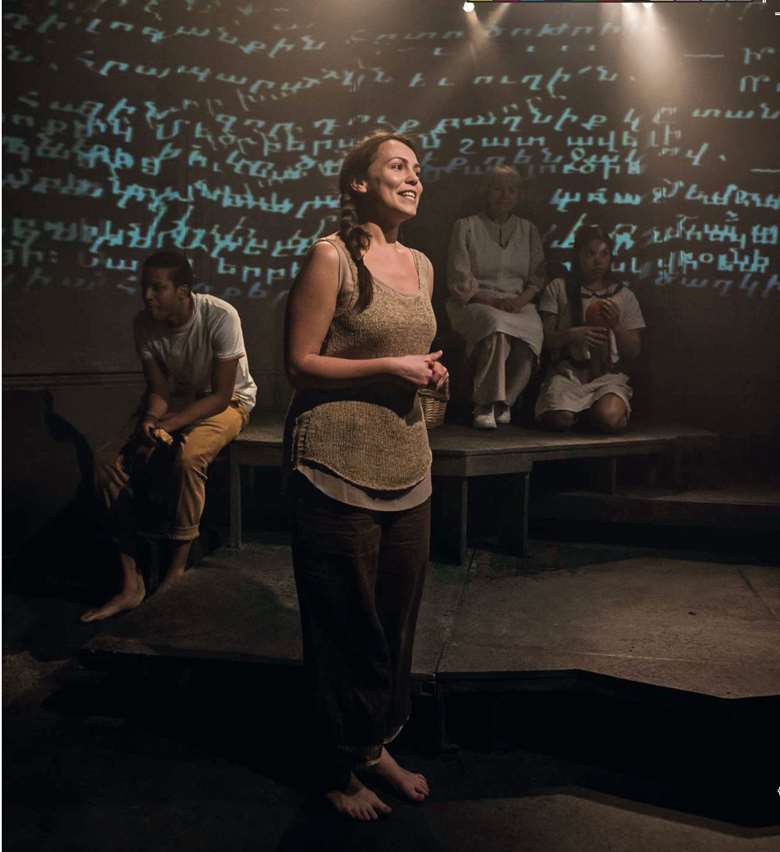Writerly support
Freddie Machin
Sunday, March 1, 2020
Doing dramaturgical work on a new play might sound daunting, but really, it's about asking the right questions, as Freddie Machin finds out

SCOTT RYLANDER
The creative process is notoriously challenging. The internet is full of memes outlining how the initial spark of inspiration is only the beginning of a journey through doubt, fear, and self-loathing before the desired outcome is reached. And even once you have overcome the worst – how do you know if what you have written is any good?
RoughHewn is a new script-reading service designed to support writers through the development process of writing a play. For a standard fee, they will read your work, and feed back in a face-to-face meeting, offering suggestions on how you might develop the next draft.
Tamar Saphra and Tommo Fowler founded RoughHewn in March 2019. They met while script-reading for the Bush Theatre. Both are freelance theatre directors and dramaturgs in their own right and run the company together.
FM: The first question to ask is what is dramaturgy?
TS: We talk about dramaturgy as a way of thinking about the shape and form of an event. We've worked with dancers, poets, and drag queens, as well as in theatre. It's like having an outside eye on an idea and asking ‘what do you want it to do?’, and then figuring out if that's what's coming across. In theatre terms, we think of it as shaping and forming a play.
FM: How did Rough Hewn come about?
TF: When we set the company up, we were doing loads of script reading for theatres, but there was a disconnect between the script reports we wrote, and what the writer was getting back. They might just get a ‘no’ without any understanding of the conversation that was being had around the play. We thought ‘how can we do dramaturgy without speaking to writers?’ It's an impossible task. So, we started Rough Hewn.
FM: What kind of feedback can writers expect from you?
TF: We do say on the website we won't tell people whether their work is good or not – good is subjective – which I absolutely stand by, but every writer does want to hear that. And they're right to.
TS: It's important that we point out what is good, and what is working. For a lot of people it's a confidence boost, they're like ‘I've done this thing, and I've no idea what it is, and I don't know who to ask about it, but I know you're going to be truthful.’
TF: Pretty much every meeting I have, I come away from it and say to Tamar, I think I've just exploded something and not put it back together. But if you can explode something, and help the writer be excited by that, and look at it in its constituent parts, they might see a much more exciting shape to put it back together.
TS: The feedback writers are used to in British theatre is ‘if you want your play to be on here you need to do this, this, and this.’ Writers often come to us expecting that kind of feedback.
TF: Which is not what we offer. If in a meeting what you've been able to do is establish what the story is, and what the writer needs the play to be or do, or the change it needs to effect in the audience then we can give that to the writer for them to decide which direction their play needs to go in.
TS: The main question is: what are you trying to do and how can you do that more successfully?
FM: The cost is extremely affordable for your level of expertise; how do you calculate your fees?
TS: We want to be clear about how long it takes us to look at a play. And to be honest, it always takes us longer than the website says, because we care about it, and we're not going to do a bad job. But the main thing is we wanted it to be accessible to people at different stages of their career.
TF: I think it's important that we put really detailed maths on our website about why it costs what it does. It's a big trust thing to pay someone you've never met to say stuff about your deepest soul, and the value of your artistry. So, we're really open about it – some of it covers our travel, so if we meet on skype you get a discount. Really simple.
Rough Hewn tips on Dramaturgy
- What is the story you are telling in a sentence? After every scene/moment ask if your work is serving that question
- Is there an image or a visual metaphor that describes the feeling of the play?
- Have an awareness of context. Don't forget who the audience is, where the performance is taking place, and who the performers are
- Allow the company to continue to be curious. Always ask why you are doing a specific thing
- Use the seven basic plots as a guide – does your work correlate? If not, what is the shape of the story?

